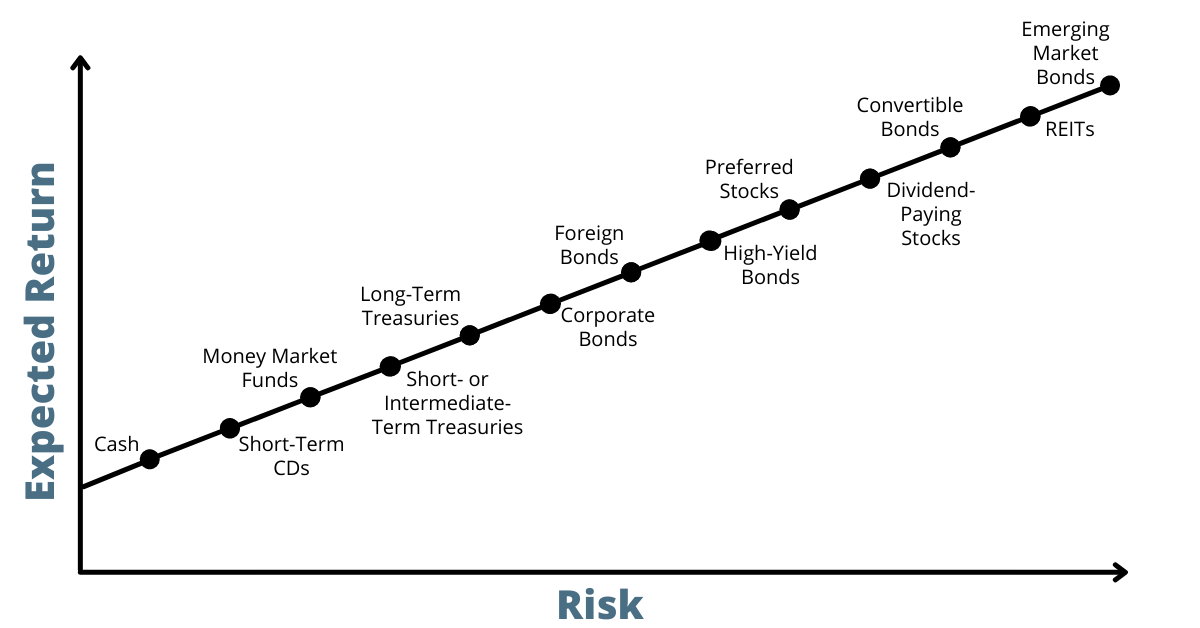Duties and Responsibilities of Trustees of a Living Trust: What You Need to Know
April 27, 2023
Duties and Responsibilities of Trustees of a Living Trust: What You Need to Know
April 27, 2023
Share this post:
What Is a Living Trust?
A living trust is an entity, a legal document, that houses your assets (investments, bank accounts, real estate, valuable personal property) in a way that avoids probate and transfers them to others in a timely and cost-effective manner. Read more about that here. A vital aspect of a living trust is choosing and naming a trustee(s)—the person(s) responsible for administering the trust upon your death.
Trustees: Who Are They?
Any individual can serve as a trustee—either a professional or a layman. A layman trustee may be the spouse of the trust creator or a close, trusted family member or friend. The most common professionals to serve as trustees are lawyers, accountants, and financial advisors. Occasionally, the attorney who drafted the trust document will be named the trustee. Having a single person in charge of the entire trust may not always be ideal; this is where directed trustees come into play. They may be in charge of a specific asset of a trust, such as the administration, investments, or running any businesses held under the trust.

Professional Trustees
There is no flat cost for a layman to serve as a trustee, but they do have a fiduciary responsibility to hire a professional to perform administrative and investment duties that the trustee cannot satisfactorily perform. Alternatively, some companies are in the business of serving as professional trustees. They employ trust officers and others to serve their trust clients. They also usually have a trust review committee to evaluate and accept trusts and a distribution committee to decide on discretionary distribution requests. There are obviously costs with both options (layman vs. professional), so do you research and make the best decision for you, your family, and your estate when setting up the fund’s trustees. Appointing more than one trustee, independent of one another, and requiring joint decision making for certain transactions (over an outlined amount in the trust) can offer some peace of mind and extra protection.
Administrative Duties of a Trustee: What Do They Do?
Administrative tasks are central to the trustee’s duties, as they act as the intermediary between the trust’s wishes and the parties distributing the assets. Administrative tasks may include asset management (e.g., tracking the trust’s assets), payment of trust income and principal (e.g., distinguishing the trust’s income from the principal), and related tax compliance (e.g., managing the trust’s tax returns and any other required disclosures or reports, including meeting filing deadlines).
Other examples of administrative duties:
- Proper funeral arrangements
- Retain proper CPA & legal advice
- Open estate/trust bank account
- Determine, secure, and protect assets. Liquidate any asset in a high-risk investment
- Collect income generated by the estate assets or payable to the deceased
Trustees become fiduciaries upon assumption of the role when the grantor dies. This is a legal term meaning that they are responsible for managing the trust’s assets to the benefit of the trust and beneficiaries, not themselves. Once in the trustee role, they assume legal responsibility for the proper administration of the trust’s assets. They must establish bookkeeping procedures and pay the trust’s bills. They also must monitor the trust’s assets regularly and make timely and careful adjustments to the portfolio to maximize the trust’s performance; this may include enlisting an investment manager to manage investments—more on this below. They also must maintain detailed records of all assets and transactions, file annual tax returns, furnish information for the trust beneficiaries’ tax returns, and provide an annual account of the trust’s performance to the beneficiaries.
The duty to account means the trustee is required to provide the beneficiaries with a detailed understanding of how they have handled the estate’s assets. In return for this, the trustee asks the beneficiaries to sign a release eliminating liability for mishandling the trust’s assets. This accounting is one of the most important duties of a trustee as this eliminates the legal liability and risk of lawsuits.
When the trust is coming to a close, they determine final asset distribution per the terms of the trust and managing all aspects relating to the trust’s close. How a trustee distributes assets is dependent on the guidelines set during the trust’s formation. This could mean distributing the gains (income) of a trust while leaving the principal alone. Or, this could be based on specific requirements outlined in the trust, such as paying for education, medical care, or housing.
Use of Investment Advisors in Trust Administration
An investment advisor (IA) is a person appointed in the trust agreement to provide the trustee with binding or non-binding guidance about managing the investments of all trust assets. This can be an individual or committee and may include family members or friends who are familiar with the trust’s long-term goals. The IA may not be deemed a fiduciary for trust law and liability purposes, depending on the trust and applicable laws. Bear in mind that the IA may not be held to fiduciary standards, meaning they may not be required to act solely in the best interest of the trust beneficiaries and may not be subject to trustee liability. It’s incredibly important to ensure you’re hiring a true investment advisor—not a broker, who is not held to fiduciary standards. Trustees can be sued if they make a mistake, and by extension, they can sue an investment advisor if the lawsuit pertains to anything under the realm of the IA. The burden of proof will be on the IA/fiduciary.
Investment advisor duties:
- Selecting and hiring investment managers
- Developing an investment policy statement
- Reviewing investment management and distributive decisions
- Receiving and reviewing the trustee’s accountings
- Providing insights to the trustee regarding the grantor’s wishes or hopes for the trust
- Possibly hiring a directed or an administrative trustee

For Illustrative Purposes ONLY—based on historical volatility, varies by source, and subject to change.
Use of Business Advisors in Trust Administration
Additionally, a business advisor (BA) may be appointed under the trust and enlisted to provide the trustee with binding or nonbinding guidance—but solely in regard to the management and disposition of a specified business (or businesses), such as operating businesses or private investment entities. Their main responsibilities include voting the shares or interests in closely held businesses and determining whether to retain or liquidate business assets and interests. A business advisor is especially helpful if the trust owns a lot of real estate or a business. Like the IA, the BA may be filled by an individual or committee of individuals who are familiar with and experienced in the business or investment entity in which the trust owns interest. These individuals may be separately compensated by the trust in addition to any salary they receive from the business. Again, the BA may or may not be deemed a fiduciary for liability purposes. The trust should outline who will perform this function, if necessary.
Trusts are very effective tools for managing estates and transferring wealth to beneficiaries and across generations, if desired. The selection of a trustee should not be taken lightly, as it is a very important responsibility to uphold the trust’s wishes. Engaging a good accountant and estate attorney when forming the trust and outlining the grantor’s wishes and trustee’s responsibilities can be a safeguard against a poorly drafted trust, which can cost families both emotionally and financially.
Every strategy is dependent on a variety of different factors, so make sure you read the fine print.
If you want to learn about more personalized and advanced strategies, click HERE to schedule a 15-min call with our team.
Click here to attend a future Liberty Group LLC webinar.
Want expert retirement and investing advice? Subscribe to our YouTube channel and check out our weekly podcast with The Sandman!
Listen to Protect Your Assets anywhere you get your podcasts:
Standard Disclosure
This blog expresses the author’s views as of the date indicated, are subject to change without notice, and may not be updated. The information contained within is believed to be from reliable sources. However, its accurateness, completeness, and the opinions based thereon by the author are not guaranteed – no responsibility is assumed for omissions or errors. This blog aims to expose you to ideas and financial vehicles that may help you work towards your financial goals. No promises or guarantees are made that you will accomplish such goals. Past performance is no guarantee of future results, and any expected returns or hypothetical projections may not reflect actual future performance or outcomes. All investments involve risk and may lose money. Nothing in this document should be construed as investment, tax, financial, accounting, or legal advice. Each prospective investor must evaluate and investigate any investments considered or any investment strategies or recommendations described herein (including the risks and merits thereof), seek professional advice for their particular circumstances, and inform themselves about the tax or other consequences of any investments or services considered. Investment advisory services are offered through Liberty Wealth Management, LLC (“LWM”), DBA Liberty Group, an SEC-registered investment adviser. For additional information on LWM or its investment professionals, please visit www.adviserinfo.sec.gov or contact us directly at 411 30th Street, 2nd Floor, Oakland, CA 94609, T: 510-658-1880, F: 510-658-1886, www.libertygroupllc.com. Registration with the U.S. Securities and Exchange Commission or any state securities authority does not imply a certain level of skill or training.

